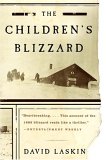Summary | Excerpt | Reading Guide | Reviews | Beyond the Book | Readalikes | Genres & Themes | Author Bio

Critics' Opinion:
Readers' Opinion:
First Published:
Nov 2004, 320 pages
Paperback:
Oct 2005, 336 pages
 Book Reviewed by:
Book Reviewed by:
BookBrowse Review Team
Buy This Book
In the weeks before, the fields and farmhouses had been sold to neighboring farmers, the horses and wagons to peasants, the furniture and kitchen items to Jews. The women packed baskets with flat bread and sausage and dried fruit for the long journey. The men scraped together enough rubles for the expensive Russian passports. Then came the day of departure. Overnight, Horodischtz, Waldheim, Kotosufka ceased to be the homes of the Kaufmanns, Grabers, Albrechts, Schrags, Preheims, and Gerings. Fifty-three families, some 342 people in all, left together for America late in July 1874.
"Schweizers," these Swiss-German Mennonites called themselves, though their families had not lived in Switzerland for some two hundred years. Because they practiced a different kind of Protestantism from their neighbors, they had been expelled from their farms in Emmental in the Canton of Bern in the 1670s. Rather than baptize their infants a few days after birth, the Schweizers waited until they were old enough to choose baptism as a "confession of faith." They advocated complete separation of church and state and refused to serve in armed forces or fight in wars. For these beliefs, particularly the last, they had been crammed into the prisons of Bern, sold as galley slaves to Venetian merchants, branded, flogged, burned at the stake, and hounded through Europe. From Emmental to the Rhineland of Germany, from Germany to Alsace and Galicia, and then to Poland and the Crimea in southeastern Ukraine, the Schweizers had fled and started over again every few generations—always moving together in groups of families, always settling together in enclaves of villages, always retaining their German language and Swiss customs, always clinging to their Mennonite faith.
They had come to the Ukraine at the end of the eighteenth century at the invitation of Russia’s Catherine the Great, lured by the promise of religious freedom, exemption from military service, the right to own land and to speak German in school and church. And for three or four generations, they had prospered on their small farms between Kiev and Lublin. Hardworking, thrifty, communal, ingenious, the Schweizers had almost uncanny success as farmers. Their flower and vegetable gardens were renowned, their cheese and butter were prized in Kiev and Odessa, silkworms fattened on their mulberry trees, and great swarms of bees pollinated their orchards. But the Schweizers’ golden age was short-lived. In 1870, Czar Alexander II withdrew the rights and protections granted by Catherine and inaugurated a policy of Slavicizing the Germanspeaking Mennonites. If they wanted to remain in the Crimea, they would have to submit to Russian military service and send their children to schools where only Russian was spoken.
Four years later, in the summer of 1874, Anna and Johann Kaufmann and all the families in their congregation piled their remaining possessions into wagons they had borrowed back from the Ukrainian peasants they had sold them to—the first wave of a mass decade-long migration that would bring some eighteen thousand Mennonites from Russia and the Ukraine to America between 1873 and 1883. For Anna, the hardest part was that she would be leaving a child behind, her first Peter, who died at the age of four the year before…
From The Children’s Blizzard by David Laskin. HarperCollins Publishers. Used by permission.





The House on Biscayne Bay
by Chanel Cleeton
As death stalks a gothic mansion in Miami, the lives of two women intertwine as the past and present collide.

The Flower Sisters
by Michelle Collins Anderson
From the new Fannie Flagg of the Ozarks, a richly-woven story of family, forgiveness, and reinvention.

The Funeral Cryer by Wenyan Lu
Debut novelist Wenyan Lu brings us this witty yet profound story about one woman's midlife reawakening in contemporary rural China.
Your guide toexceptional books
BookBrowse seeks out and recommends the best in contemporary fiction and nonfiction—books that not only engage and entertain but also deepen our understanding of ourselves and the world around us.